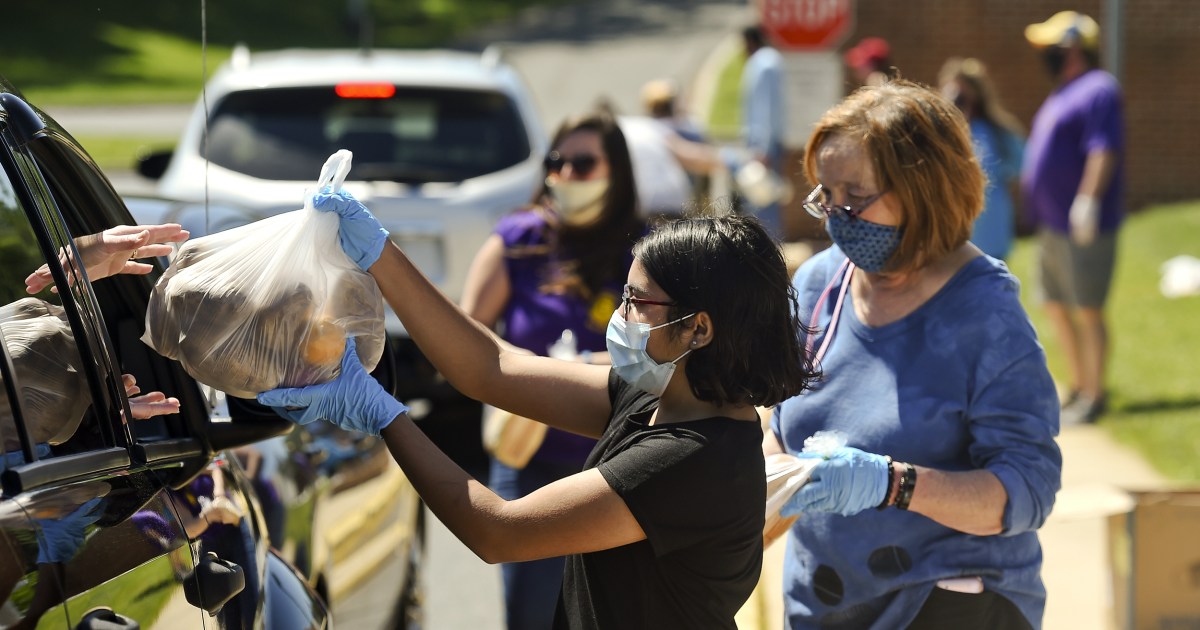
“People who never thought they'd experience food insecurity are now seeking food assistance,†said Luis Guardia, president of the nonprofit Food Research & Action Center.
Food assistance nonprofit Feeding America estimates that with household finances decimated by the coronavirus, around 40 percent of people visiting food banks are first-time recipients of food assistance.
“It’s just a mad dash to make sure nobody’s going hungry during COVID,†said Christopher Robertson, director of Market to HOPE, a food pantry that operates within Catholic Charities of Southeast Texas.
“There are issues around historic systemic racism,†Lateef said, that make non-white populations more vulnerable to food insecurity.
Market to HOPE’s clients include many undocumented immigrants, who often are either ineligible for benefits or unwilling to risk deportation by applying, Robertson said.
Joey Keys, CEO of the Southeast Missouri Food Bank, said his organization saw a sharp acceleration in the early days of the pandemic, and demand is now running 25 to 30 percent higher than it was pre-pandemic.
A lot of it was first-time people needing assistance,†he said.
“I assume there’s probably a lot of people in the same boat as us,†she said.
“Nobody wants to act like they need help,†she said, but the couple, who also have part-time custody of Hennecke’s seven-year-old stepson, quickly realized that they would need additional assistance and reached out to the Southeast Missouri Food Bank.
Some advocates who work with low-income populations say that when people feel forced to choose between paying for food and paying for shelter, that’s indicative of a bigger problem.
“I think there is a big wave of folks that are going to be suffering economic hardship that are in need of basics like food and housing,†he said.
Feeding America’s Fitzgerald said Congress needs to extend the enhanced unemployment insurance benefits that are scheduled to expire at the end of July, and commit to higher funding levels for the Supplemental Nutrition Assistance Program and other initiatives
“What we are concerned about is the unemployment benefits are going to be discontinued at the level they are at right now and unless we have additional investment… we’re going to have a very significant gap,†between the food people have and what they need, she said
As a growing number of states, including Texas, battle rising COVID-19 case numbers, Robertson said he worries about what the future holds
“There's going to be a growing need, an enormous wave of people who are going to need our services,†Ramirez said
